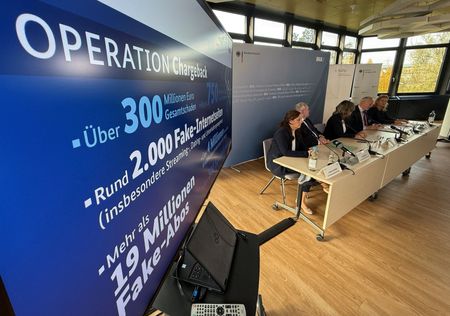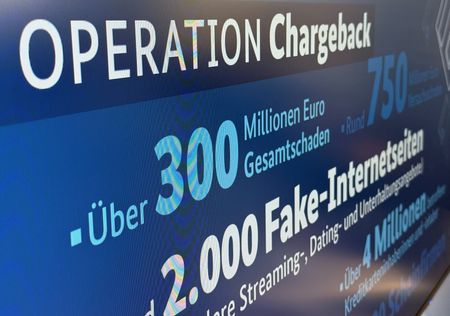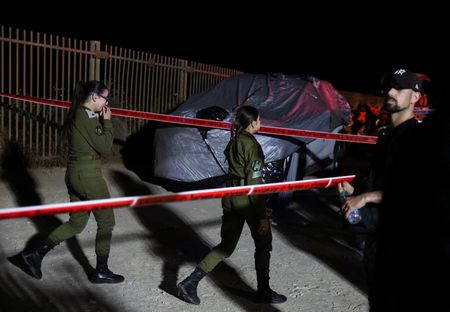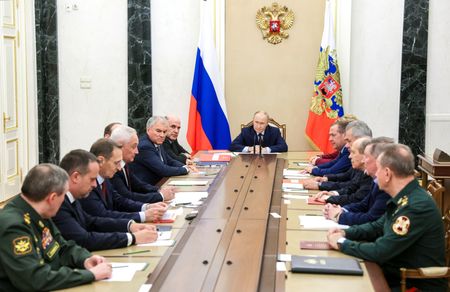By Tom Sims
WIESBADEN, Germany (Reuters) -Eighteen people have been arrested following a German-led internationally coordinated investigation of online fraud and money laundering networks that used payment service providers, German authorities said on Wednesday.
A total of 44 suspects, including six former employees of large German payment service providers, are believed to have taken part in the scheme, which involved stealing the credit card details of some 4.3 million people across 193 countries, German police and prosecutors said.
The suspects partly used phishing to steal individuals’ data and then created subscriptions for recurring bills on fake porn and dating services, all with support from payment firms, racking up more than 300 million euros in damages, the officials told a press conference in the German town of Wiesbaden.
GERMANY’S FINANCIAL SECTOR COMPROMISED, SAYS PROSECUTOR
The scheme deals a fresh blow to the reputation of the financial sector in Europe’s largest economy, five years after German payments firm Wirecard collapsed in a fraud scandal.
“The accused collaborated with four major German service providers, thereby compromising part of the German financial sector. This underscores the particular significance of these proceedings,” the prosecutor in the case, Harald Kruse, said.
Officials declined to name the payments firms that employed the individuals, but a person with direct knowledge of the matter said the firms included Unzer and Nexi.
Unzer said in a statement it had terminated dealings with businesses in question in 2021. “Investigations are not directed against persons currently employed by the company,” it said.
Nexi also said it had “proactively terminated all relevant business relationships” in 2021.
Prosecutor Susanne Schueler accused the former employees of improprieties in the initial decision to do business with questionable companies and of failures in the subsequent monitoring of transactions.
The sprawling nature of the case highlights the blurring intersection between the worlds of cybercrime and white-collar crime, the officials said.
“What initially looked like small debits turned out to be a global business model with professional structures,” Daniel Thelesklaf, the head of Germany’s Financial Intelligence Unit, told the same press conference.
“We can see what financial crime looks like in 2025. It is international, it is digital, and it is collaborative.”
The officials gave no details about those arrested.
Officials had kept their investigation under wraps until late Tuesday, when they disclosed a coordinated search of buildings in Germany, Italy, Canada, Luxembourg, the Netherlands, Singapore, Spain, the U.S. and Cyprus.
(Additional reporting by Hakan Ersen; Editing by Gareth Jones and Sabine Wollrab)












